What is Existentialism? Part 2 - The Short History of Existentialism: II - Pre-existentialists
The Dialectics of Liberation: Anarchism, Existentialism, and Decentralism
What is Existentialism? Part 2 - The Short History of Existentialism: II - Pre-existentialists
"Don't believe what you see and what you are told, think for yourself." - charlie 777
1- Introduction
We have two kinds of internal beliefs, the ones that we interiorize order from other people, that are so right to us, that we can't stop defending them, and we have the other kind of beliefs that we have build by ourselves without any authority figure modeling it, except us.
Of course, it is a nightmare mind trip to find the ones that we are blind about them, the real convictions we are not aware, and the ones we built using parts of this subconscious "forced" ones by the outside.
Meaning, if you had an authoritarian father or a fascist environment you will have to dig in your self to get rid of those non-adaptative models for today's survival and that you are almost unconscious of it. For example, Kierkegaard had very deep religious convictions, he was not able to justify or explain it clearly.
Now we will talk about the closer and strong influences of the existentialist movement.
"It is only in our decisions that we are important." Jean-Paul Sartre
Existentialist philosophy is connected to other metaphysical domains of thought like Idealism (Plato) based in human values, Realism (Aristotle) analyzing attitudes and experience, and Pragmatism (Experientialism) focused our learning beliefs and culture.
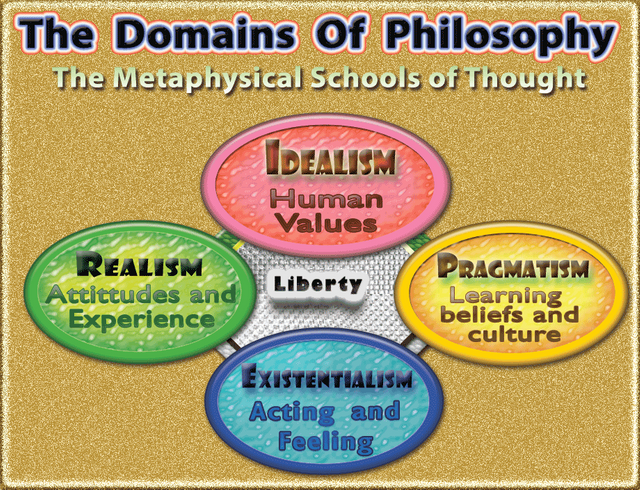
Existentialism was a passage of traditional analytic philosophy, centered in the Thinking Subject, to a more focused view on the Human Subject acting and feeling of each Person, and the search of authenticity of the individual fight for freedom, that is the fountain of permanent Angst of the choices for living and experiencing our actions.
And now let's dig up the roots of the existentialist tree of thought.
|
In my late adolescence I started reading Fyodor Dostoyevsky and I couldn't stop till I found every book and letter that were translated from Russian because every character in his books is alive, they are tormented and agonizing in the comprehension of their selves, and feeling miserable from being unable to comprehend and join the other human beings and society. From then on I immersed in psychoanalysis, psychology, philosophy, anti-psychiatry and a lot of writers that look at some angles of his persona's inner conflict of their Essence and the collision with Existence with others in society. Fyodor Mikhailovich Dostoevsky was a Russian novelist, journalist, and essayist, in his book Notes from Underground (1864) with the "underground man" who suffer to define himself and his needs to deal with the world, to feel a sense of belonging, and at the same time , affirm his autonomy and total freedom of choice in a big fight to exist and find himself, and trying to create the meaning of his life and make sense of Existence. The figure of the "underground man" (that he certainly was) of the above novel, fights to understand the nature of his Being and assuming total responsibility for his acts, his existence, and the world around him. Fyodor Mikhailovich Dostoevsky is the main historic roots of the philosophical branch of existentialism, showing how alone we are, and the constant despair of the human condition pressed by moral, society, state, and economic institutions and as well overcome the limitations of the transcendence of God(s) determining our Fate to avoid our self-determination in the construction of our Destiny. Dostoyevsky was an activist, maybe a radical, surely an insurrectionist, and maybe a terrorist, with connections to underground utopian groups, that wanted to transform society, and after being arrested he passed the experience of a fake firing squad execution. After the plot made by the aristocratic power, he was sent to Siberia for a 4-year sentence and after jail, he becomes part of the nihilist generation in Russia. Sartre and Dostoyevsky were masters of psychological profiling of individuals and their inner conflicts and constraints of the social situations, showing the perversities, perfidy, and the violence of human condition. Dostoyevsky was a moral nihilist and the best travel in the phenomenology of self-consciousness and responsibility for our actions, a key-author for the comprehension of our own Selves. |
|
|
I confess, Kierkegaard, it was always a difficult reading that I only started after my youth, because of its references to the transcendental view of God and his exacerbated Christianity that criticized the church and the religious practices of his epoch, and I refuse to accept freeborn humans, must exercise their will with a double bind of a supreme power conditioning it, beyond the human finitude of Death. Søren Kierkegaard, a Danish philosopher was Influenced by Hegel and Kant, and he turned into one of the biggest fountains of knowledge where existentialism have rooted its philosophical concepts and references.
Kierkegaard says "Truth is subjectivity and subjectivity is the Truth", it means the denial the objectiveness of truth in terms of factuality, and this applied to the Christianity he believed in. For Stirner, we are "An abyss of lawless and unregulated impulses, desires, wishes, passions, chaos without light or guiding star". I'm not a fan of Kierkegaard because of his Christian beliefs of God as a higher being beyond our true selves, and I believe that the individual must search self-emancipation to find the truth in authenticty, with all its subjectivity. Kierkegaard and Nietzsche, are the father and mother, the most inspirational and fundamental draw-well, from where the existentialist movement drank its principles and forming concepts. |
|
Nietzschean philosophy rooted Western intellectual history of the XIX century in a lot of subjects, like the truth and morality, religion and science, theory of culture and language, will for power and consciousness, in the search of a meaning for existence, bringing up the Übermensch (Superman) and proclaiming that "God is dead". His central point of view is the will to power as the force underlying human actions that would drive the achievement of personal ambitions and to climb the human mountains of human hierarchy, to enhance the exercise of that power. Nietzsche is considered an Existential nihilist because there is no order or objectives in the world, except the way we shape it, but there is no way or values to sustain, and that it can't be obtained by reasoning, so life is meaningless and have no purpose or goal. A nihilist does not believe in the truth of morality, and Nietzsche believed that the order of the world was a personal construction by the destruction of the facades of reality, because life has no meaning, no values have a foundation to bear them, and rationality and reasoning is nonsense. But the most important thing that existentialism teaches us is that we can create our own signified that is subjective, but that it gives some personal power in life, beyond atheism as a simple denial of belief in God. |
|
One of the books that help my personal dialectic of the fight for freedom was no doubt, Arthur Schopenhauer, a German philosopher I started to read when I was 22 years old, beginning with his long book The World as Will and Representation (1818), where we see his phenomenological view of the world as the product of the exercise of a blindfolded and insatiable metaphysical will of any individual. He influenced the philosophical views of Nietzsche and Wittgenstein, by showing that the world is only a representation of our own will. For Schopenhauer, society is a representation of humanity's will, and when power solidifies suffocates people and life, and it is the struggles, obstacles, and barriers to be overcome by suffering, leading to a kind of spiritual suicidal pessimism that it does not apply to the escape of disconnecting the body to end this despair by voluntary death. He said that a madman is the one who can't use his memory, maybe he was the first to feel that there was a darker side of consciousness, that Eduard von Hartmann materialized in the book Philosophy of the Unconscious (1869), that culminated in Freud's concept of human psychic apparatus. |
|
Karl Marx unveiled the economic order of the bourgeois capitalist society, the relations of production and the liaison between capital and the unequal distribution of added value created because it is pre-determined by the hierarchical structure of classes. I never liked to confuse the economic theory of Marx, with the resulting negative praxis of Marxists that invest themselves with an infinite exercise of the power of their will, and get obsessed like many fascists did and keep doing by murdering voices and people. In my youth times, we used to call it social fascists, because any centralized structure like individualism (liberalism) or collectivist always put too much-unscrutinized power, in the hands of a few Man and Women that always corrupt the exercise of authority into prepotency. Also, liberalism or individualism exercised with the control of centralized authority will always muzzle free trade, free markets, and free will voices. To finish I will leave the readers with Marx in its own prophetic words that we are now living in the actual market-war share of imperialist regimes. This quote below shows a lot, what is going on today, with the cachectic chess piece of Trump, in the already tense international game, boiling the pan of imperialist Wars.
"Protectionism is Economic war, that precedes real Belic confrontations" - charlie 777 |
I hope I have claryfied the central thoughts of the authors that have influenced the minds of existentialist thinkers.
In the next post, we will approach the Phenomenologist movement that had strong influences in the theoric corpus of Existentialism.
Videos:
The Mock Execution of Fyodor Dostoyevsky
The Good Life: Nietzsche [HD]
Image sources: Wikipedia
The Dialectics of Liberation: Anarchism, Existentialism and Decentralism.
Published Posts:
Introduction to the Dialectics of Liberation: Anarchism, Existentialism and Decentralism
I - Anarchism
- What is Anarchism?
- The History of Anarchism
- Part 1 - Pre-Anarchy - Social Revolution
- Anarchy: Revolution Against The State
- Anarchy Today
- Index and Conclusions of part 1 - Anarchy
II - Existentialism
- What is Existentialism ?
- Part 1 - Unplugged Introduction to Existentialism
- Part 2 - The Short History of Existentialism: I - Early Pre-existentialism
- Part 2 - The Short History of Existentialism: II - Pre-Existentialists - This post
Next posts on the Series:
II - Existentialism(Cont.)
- What is Existentialism ? (Cont.)
- Part 2 - The Short History of Existentialism: III - Phenomenology
- Part 2 - The Short History of Existentialism: IV - Humanist Existentialists
- Part 2 - The Short History of Existentialism: V - Post -Structuralism
- Part 3 - The Philosophy of Existentialism: I - The Meaning of Nonsense
- Part 4 - The Fear of Freedom of Erich Fromm
- The "Existentialists"
- Part 1 - The Players and the Times
- Part 2 - Jean Paul Sartre - the Man of The 20th Century
- Humanism and Existentialism
- Existentialism and Anarchism
- The Future : Posthumanism, transhumanism and inhumanism
III - Decentralism
- What is Decentralism?
- The Philosophy of Decentralism
- Blockchain and Decentralization
- Anarchism, Existentialism, and Decentralism
IV - Dialectic for Self-Liberation
- The Dialectics of Liberation Congress
- Psychedelics, Libertarian and artistical movements
- Psychoanalysis and Existentialism
- The Anti-psychiatry movement
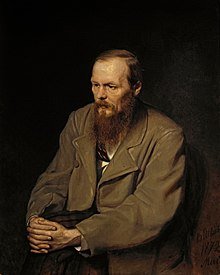 2- Fyodor Mikhailovich Dostoevsky
(1821-1881)
2- Fyodor Mikhailovich Dostoevsky
(1821-1881) 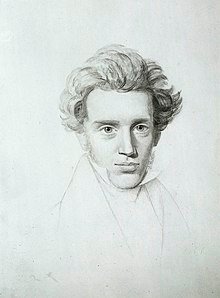 3 - Søren Kierkegaard
(1813-1855)
3 - Søren Kierkegaard
(1813-1855)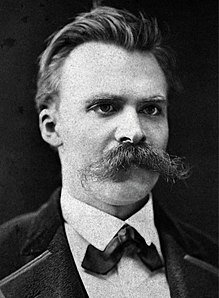 4 - Friedrich Nietzsche (1844-1900)
4 - Friedrich Nietzsche (1844-1900)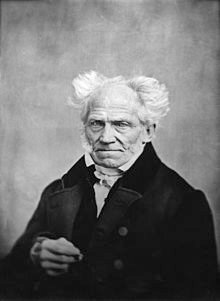 5 - Arthur Schopenhauer (1788-1860)
5 - Arthur Schopenhauer (1788-1860) 6 - Karl Marx
(1818-1883)
6 - Karl Marx
(1818-1883)
@charlie777pt You have received a 100% upvote from @intro.bot because this post did not use any bidbots and you have not used bidbots in the last 30 days!
Upvoting this comment will help keep this service running.
I hope the bot read the replies, hehe.
Very good service for steemit.
Recommended.!!!
I need to read some Dostoevsky, everyone talks so highly of him. I think I have a copy of The Brothers Karamazov somewhere, so I'll probably start with that.
The Brothers Karamazov is like the Compendium of Dostoevsky, the darkest and difficult one to read.
In the beginning, it seems very dense and impenetrable but if you keep insisting, the mind and experience of the characters became much clear.
My first and easiest one I read at 14 The Gambler and it was more accessible.
But Crime and Punishment is a masterpiece too.
Thanks for the comment. :)